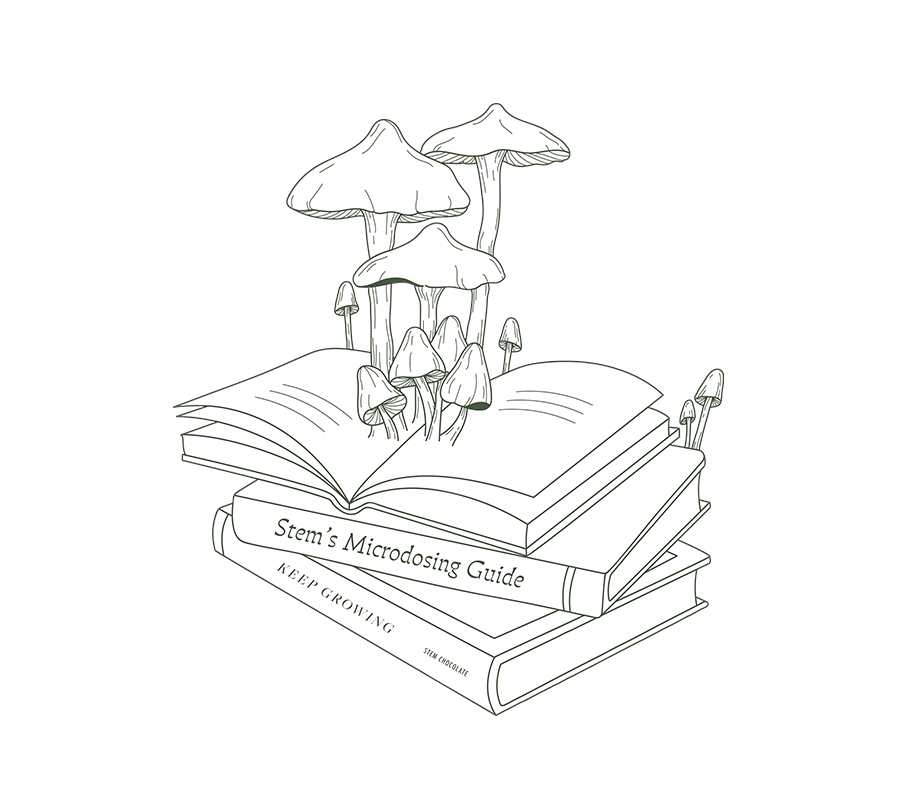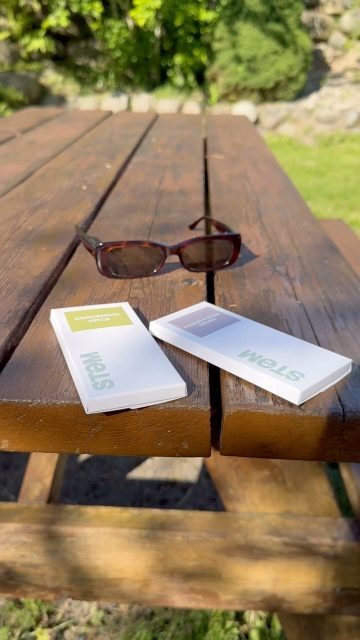Psilocybin is a naturally occurring psychoactive substance found in certain types of mushrooms, commonly referred to as magic mushrooms. It has been used for centuries in spiritual and therapeutic practices, but its use has become more widespread in recent years. However, there is still a lot of debate surrounding the potential addictive and harmful effects of psilocybin.
First of all, it is important to understand how psilocybin works in the brain. When ingested, psilocybin is converted to psilocin, which binds to serotonin receptors in the brain, causing changes in perception, mood, and thought processes. This can lead to a range of physical and psychological effects.
The physical effects of psilocybin are relatively mild and may include nausea, dilated pupils, increased heart rate and blood pressure, and changes in body temperature. However, the psychological effects can be more profound and include changes in perception, mood, and thought processes. These effects can last anywhere from 4-6 hours, depending on the dosage and individual factors.
One of the biggest concerns surrounding psilocybin is its potential for addiction. However, studies have shown that psilocybin is not physiologically addictive. This means that individuals do not develop a physical dependence on the substance. However, some individuals may develop a psychological dependence on the experience or escape that psilocybin provides. Signs of psilocybin addiction may include an intense desire to use the substance, increased tolerance, and withdrawal symptoms when use is stopped.
While psilocybin may not be physically addictive, it can still be harmful if not used responsibly. Short-term effects may include anxiety, paranoia, and panic attacks, which can be particularly distressing for individuals who are prone to mental health issues. In the long-term, heavy or frequent use of psilocybin may lead to persistent psychosis and flashbacks, although these effects are relatively rare.
On the other hand, there is also evidence to suggest that psilocybin can be used therapeutically. Research has shown that psilocybin-assisted therapy may be effective in treating conditions such as depression, anxiety, addiction, and end-of-life distress. However, more research is needed to fully understand the potential benefits and risks of psilocybin therapy.
When using psilocybin, it is important to take certain safety precautions. These include being in a safe and comfortable environment, having a sober sitter present, and not mixing psilocybin with other substances. There are also potential risks to consider, such as an increased risk of accidents or injuries, as well as the possibility of a bad trip or adverse reactions.
In conclusion, while psilocybin may not be physically addictive, it can still be harmful if not used responsibly. However, there is also evidence to suggest that it may have therapeutic potential. If considering using psilocybin, it is important to educate oneself on the potential risks and safety precautions, such as opting for measured doses in products like psilocybin chocolate bars, and to always use it in a responsible and controlled manner.
What Is Psilocybin?
Psilocybin is a naturally occurring psychedelic compound found in certain species of mushrooms. It is a hallucinogenic substance that affects the brain’s serotonin receptors, leading to altered perception, mood, and cognition. Psilocybin has been used for centuries in spiritual and cultural practices, but it is important to approach its use with caution. This is because it can have profound effects on one’s mental and emotional state. If you are considering the use of psilocybin, it is recommended to educate yourself on its potential risks and benefits and to seek guidance from trained professionals experienced in its use.
How Does Psilocybin Work In The Brain?
Psilocybin, the active compound in magic mushrooms, interacts with serotonin receptors in the brain, resulting in altered perception and changes in mood, thoughts, and consciousness. Here is a breakdown of the steps involved in how psilocybin works in the brain:
- First, psilocybin is ingested and converted into psilocin in the body.
- Next, psilocin binds to serotonin receptors, specifically the 5-HT2A receptors, in the brain.
- This binding initiates a series of effects, including increased activity in areas like the prefrontal cortex and decreased activity in the default mode network.
- These changes in brain activity contribute to the psychedelic effects of psilocybin, such as hallucinations and altered perception.
- Additionally, psilocybin promotes neuroplasticity and increases the release of neurotrophic factors, potentially resulting in long-term changes in brain structure and function.
What Are The Effects Of Psilocybin?
Psilocybin, a naturally occurring psychoactive compound found in certain types of mushrooms, has gained attention for its potential therapeutic benefits. However, before we delve into its potential uses, let’s first understand the effects of psilocybin on the mind and body. In this section, we will explore the physical effects of psilocybin and its impact on the body, followed by an examination of the psychological effects and how they may differ from other psychedelics. By gaining a better understanding of these effects, we can better evaluate the potential risks and benefits of using psilocybin.
1. Physical Effects
Psilocybin, a hallucinogenic compound found in certain mushrooms, can have various physical effects on the body.
- Elevated heart rate and blood pressure
- Dilated pupils
- Increased body temperature
- Changes in coordination and balance
- Sweating and chills
- Nausea and stomach discomfort
2. Psychological Effects
Psilocybin, a hallucinogenic compound found in certain mushrooms, can produce profound psychological effects. These effects may vary depending on factors such as dosage, mindset, and surroundings.
Some common psychological effects include:
- Altered perception
- Heightened senses
- Introspection
- Spiritual experiences
Additionally, psilocybin can induce feelings of euphoria, relaxation, and a sense of interconnectedness. These effects are believed to be caused by the compound’s interaction with serotonin receptors in the brain. It is important to approach the use of psilocybin responsibly, in a safe and supportive environment, as the psychological effects can be intense.
Pro-tip: Always thoroughly research and understand the potential psychological effects before engaging in psilocybin experiences.
Is Psilocybin Addictive?
Psilocybin, the active compound in magic mushrooms, is not considered addictive. Studies have shown that the use of psilocybin is not associated with physical dependence or withdrawal symptoms. It affects serotonin receptors in the brain, resulting in altered perceptions and a sense of well-being. While psilocybin can be intense psychologically, it is not habit-forming. However, it is important to approach the use of psilocybin responsibly and in a safe environment.
Now, let me share a true story. A friend of mine tried psilocybin for the first time and had a profound spiritual experience that helped him gain insights into his life and find clarity.
What Are The Signs Of Psilocybin Addiction?
Signs of psilocybin addiction may manifest in various ways, such as persistent cravings, a higher tolerance, and withdrawal symptoms. Other indications may include neglecting responsibilities, withdrawing from social interactions, and continuing to use despite negative consequences.
It is important to keep in mind that psilocybin addiction is not common, but it can develop in individuals who misuse or abuse the substance. Seeking professional help and support is crucial for those experiencing signs of addiction, as treatment options like therapy and support groups can assist in the recovery process.
Can Psilocybin Be Harmful?
Psilocybin, the active compound in magic mushrooms, has been found to have a low potential for harm. While psilocybin can lead to intense experiences, it is generally considered safe when used responsibly. However, there are certain factors that should be taken into consideration as they could make psilocybin harmful for some individuals. These include:
- pre-existing mental health conditions
- inadequate preparation or guidance
- irresponsible use in unsafe environments
In rare cases, adverse effects such as anxiety, paranoia, and psychosis have been reported. Therefore, it is crucial to approach psilocybin use with caution, ensuring a supportive setting and proper education to minimize potential harm.
What Are The Short-Term Effects Of Psilocybin?
Psilocybin, a naturally occurring psychedelic compound found in certain mushrooms, can have a variety of short-term effects on the mind and body. These effects usually begin within 20-40 minutes after consumption and can last up to six hours. Some common short-term effects include:
- Sensory distortions
- Changes in perception of time and space
- Altered thought patterns
- Shifts in emotions
- Increased introspection
Physical effects may include:
- Dilated pupils
- Increased heart rate
- Elevated blood pressure
- Nausea
- Changes in coordination
It is important to note that the specific impact of psilocybin can vary depending on factors such as dosage, individual sensitivity, and the environment and mindset in which it is taken.
True story:
“I had my first experience with psilocybin while camping with friends. The short-term effects were truly transformative. As I gazed at the starry night sky, the stars appeared to dance and twinkle in vibrant colors. My thoughts became introspective, leading to deep self-reflection and personal growth. While the experience was intense and overwhelming at times, it also brought a sense of peace and clarity. The short-term effects of psilocybin allowed me to delve into my mind and emotions in ways I never thought possible.”
What Are The Long-Term Effects Of Psilocybin?
The long-term effects of psilocybin are still being studied, but current research suggests potential positive outcomes. Studies have shown that psilocybin can lead to long-lasting improvements in mental health, including reduced symptoms of anxiety and depression. It may also enhance emotional well-being, increase openness, and promote a sense of connectedness. Additionally, psilocybin has been explored as a potential treatment for substance use disorders, with some promising results. However, more research is needed to fully understand the long-term effects and potential risks of psilocybin use.
How Can Psilocybin Be Used Therapeutically?
Psilocybin can be utilized therapeutically in controlled settings to aid individuals with mental health disorders or for personal growth and self-discovery.
- Screening and assessment: Assess suitability and eligibility for psilocybin therapy through a thorough evaluation.
- Preparation: Educate and prepare participants for the experience, including discussing intentions, potential effects, and managing expectations.
- Setting: Establish a safe and supportive environment, often with trained therapists or facilitators, to ensure a comfortable and secure space for the session.
- Administration: Psilocybin is typically consumed orally, with the dosage carefully measured and administered by a professional.
- Integration: Facilitate post-session integration through therapy or supportive practices, helping individuals process and integrate their experiences into their daily lives.
What Is The Current Research On Psilocybin Therapy?
Ongoing research on psilocybin therapy is showing promise in treating a variety of mental health conditions. Studies have demonstrated its potential in addressing depression, anxiety, PTSD, and addiction. Researchers are currently investigating its mechanisms of action, optimal dosing, and long-term effects.
For instance, a recent study found that psilocybin therapy led to significant reductions in depressive symptoms and improved quality of life for patients with treatment-resistant depression. These findings underscore the potential of psilocybin as a therapeutic tool, though further research is necessary to fully comprehend its benefits and potential risks.
Additionally, a personal account of a patient who experienced positive results from psilocybin therapy could offer a unique perspective on its potential effectiveness.
What Are The Safety Precautions When Using Psilocybin?
When using psilocybin, it is important to take certain safety precautions to ensure a positive and safe experience. Here are some guidelines to follow:
- Set and Setting: Choose a comfortable and familiar environment where you feel safe and relaxed. Surround yourself with supportive individuals who can assist if needed.
- Start Low and Go Slow: Begin with a low dosage to gauge your sensitivity and reactions. Gradually increase the dosage over time, if desired.
- Research and Education: Educate yourself about psilocybin, its effects, and potential risks. Understand the legality of psilocybin in your area.
- Integration and Support: After your experience, take time to reflect and integrate the insights gained. Seek support from a therapist or support group if needed.
Remember, safety is paramount when using psilocybin. Always prioritize your well-being and make informed decisions.
What Are The Potential Risks Of Using Psilocybin?
Using psilocybin carries certain potential risks that need to be considered. These risks include:
- Psychological distress: Psilocybin can induce intense and unpredictable psychological effects, such as anxiety, panic, and paranoia.
- Bad trips: Some individuals may experience frightening or overwhelming hallucinations and emotions during a psilocybin experience, leading to a negative psychological impact.
- Flashbacks: Occasionally, individuals may have recurring hallucinogenic experiences long after their initial use of psilocybin, known as flashbacks.
- Accidental injury: The altered perception and impaired coordination caused by psilocybin can increase the risk of accidents and injuries, especially when operating machinery or driving.
- Mixing with other substances: Combining psilocybin with other drugs or alcohol can lead to unpredictable and potentially dangerous interactions.
It is crucial to understand these potential risks and exercise caution when considering the use of psilocybin.
Summary
Psilocybin, a hallucinogenic compound found in certain mushrooms, is typically considered to have low potential for addiction and harm. Research has shown that it may have therapeutic benefits for conditions such as depression and anxiety. However, it is important to use psilocybin responsibly and under the guidance of a medical professional. While it can lead to profound experiences, it may also cause psychological distress in some individuals. More research is necessary to fully understand the long-term effects and potential risks associated with psilocybin use.
Frequently Asked Questions
Is psilocybin addictive?
The addictive potential of psilocybin, a hallucinogenic compound found in certain types of mushrooms, is still being studied. Currently, there is no evidence to suggest that psilocybin is addictive, but more research is needed to fully understand its potential for addiction.
What are the short-term effects of using psilocybin mushrooms?
Short-term effects of psilocybin use may include altered perception of time, muscle relaxation, and intense emotional experiences. These effects vary from person to person and can also be influenced by the individual’s mindset and environment.
Are there any long-term consequences of psilocybin use?
Some individuals may experience long-term consequences such as flashbacks, psychosis, and memory problems after using psilocybin. However, more research is needed to fully understand the long-term effects of psilocybin use.
Can using psilocybin mushrooms be harmful?
While psilocybin mushrooms are generally considered safe, there are potential health risks associated with their use. These risks include accidental poisoning if a poisonous mushroom is consumed and the potential for dangerous psychological experiences for individuals with pre-existing mental health conditions.
Is there any evidence for the therapeutic use of psilocybin mushrooms?
Historically, psilocybin mushrooms have been used for medicinal purposes in traditional cultures. Recent studies have also shown potential therapeutic benefits for mental health disorders, but more research is needed before it can be considered a safe and effective treatment option.
What is the legal status of psilocybin mushrooms?
In most countries, psilocybin mushrooms are considered illegal and are classified as a Schedule I drug by the DEA. This means that they are considered to have a high potential for abuse and no recognized medical use. Possessing or using psilocybin mushrooms can result in legal consequences.













